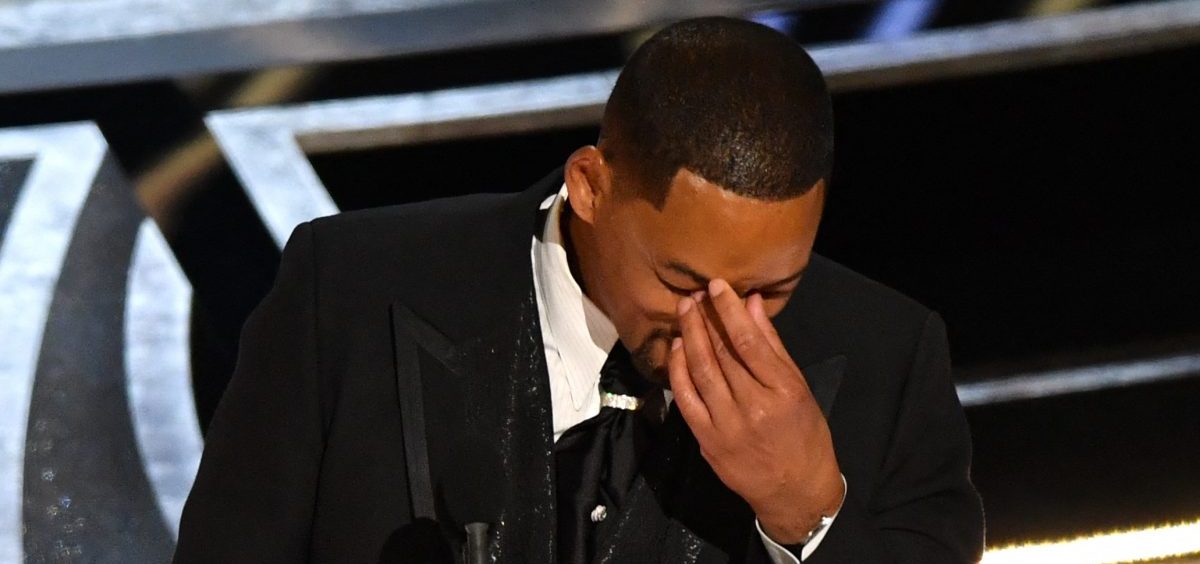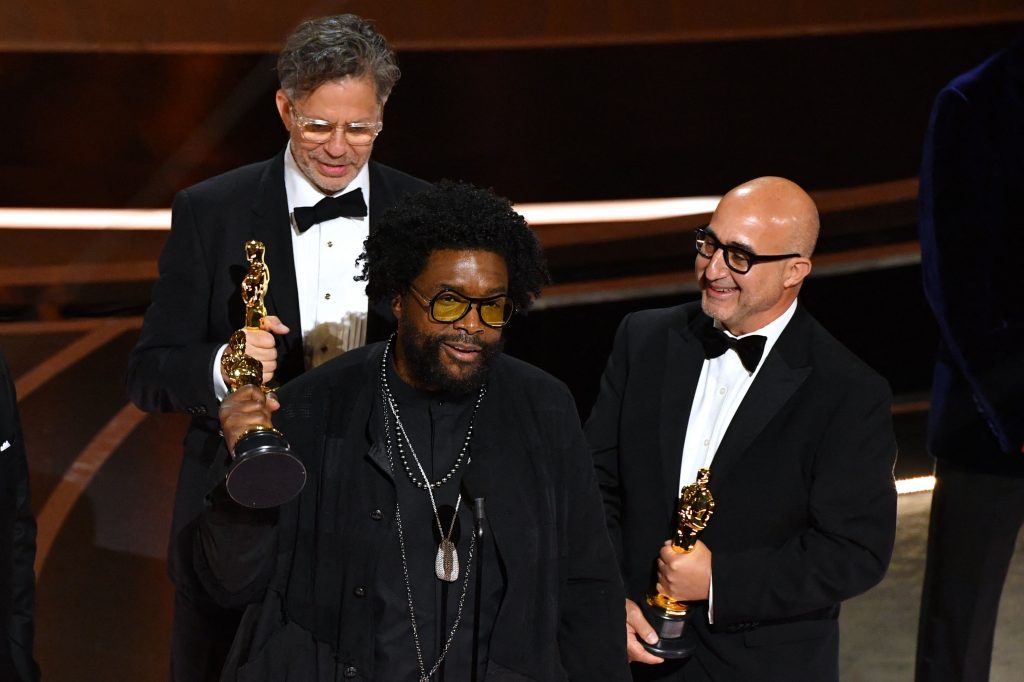Culture

After Will Smith slapped Chris Rock, the Oscars took a turn
By: Linda Holmes | NPR
Posted on:
Editor’s note: This post contains information that some may find offensive.
WASHINGTON, D.C. (NPR) — It was an unsurprising Oscars telecast until Will Smith hit Chris Rock.
The favorites had mostly won: Ariana DeBose for West Side Story, Troy Kotsur for CODA, lots of technical awards for Dune. The hosts — Regina Hall, Amy Schumer and Wanda Sykes — had made a bunch of jokes and been put through a few bits, some not bad and some very bad. Every unnecessary montage was judged for its merit against the eight awards that the producers had cut from the live broadcast. A great musical number from Beyoncé, a star-studded take on the Encanto hit “We Don’t Talk About Bruno” that some people liked and some people emphatically didn’t. In other words, a pretty regular Oscars Sunday night.
It would later conclude with a best picture win for the family drama CODA, but we didn’t know that yet. We just knew things were humming along largely as expected — Encanto for animated feature, Drive My Car for international feature, and so on.
And then Chris Rock came on stage to present the Oscar for best documentary feature. He did a little bit about how Javier Bardem had better hope that he didn’t win if “his wife” (that would be nominee Penelope Cruz) didn’t win, which is your basic “wives are the worst, right?” joke.
Then Rock turned to Jada Pinkett Smith. He said he was looking forward to seeing her in G.I. Jane 2. This was primarily a joke about her being bald, which he may or may not have known is related to alopecia. Will Smith looked briefly like he laughed; she did not.
Then it happened very fast: movie star Will Smith — who was favored to win best actor for King Richard in, like, a few minutes — came up on stage and hit Rock. Rock looked stunned, and Smith went back to his seat, and then the audio cut out while they exchanged words. Smith yelled that Rock should keep Jada’s name out of his mouth, and then Rock, still seeming shaken, gathered himself and presented the award to Questlove’s Summer of Soul (…Or, When The Revolution Could Not Be Televised).
VIA JAPANESE TELEVISION: The uncensored exchange between Will Smith and Chris Rock pic.twitter.com/j0Z184ZyXa
— Timothy Burke (@bubbaprog) March 28, 2022
A lot of people wondered, at least briefly, if this had been some kind of a bit, a scripted fake fight with a fake punch to match. But quickly, Rock’s demeanor and Smith’s both seemed to suggest it was exactly as it appeared: the best actor favorite simply got up out of his seat, walked onstage, and hit the presenter for making an offensive joke about his wife. And perhaps more surprisingly, he was allowed to return to his seat and continue watching as if nothing had happened. If anyone other than Will Smith — or someone else famous enough — had walked on stage and hit someone, he probably would have been escorted out, at the very least. But that would have made for a pretty awkward “we accept this award on his behalf” moment.
Because it got stranger moments later, when Will Smith did indeed win his first Oscar for King Richard, in which he played the father of Venus and Serena Williams. While the speech rambled — for obvious reasons, he could not simply give the one he had probably carefully planned — it was loosely framed around the idea that Smith, like Richard Williams, believed in protecting others, especially people in his family, especially women. He apologized to the Academy and to his fellow nominees for his behavior, but not to Rock. A couple of times, he tried to slide through it on charm, making little jokes about how he had made himself look like “the crazy father,” just like Richard Williams, adding more seriously that “love will make you do crazy things.”
It’s hard to overstate how the mood of the room changed, how awkward it got. Rock’s joke had certainly been cheap, based on a condition Jada Pinkett Smith has talked about finding very painful, and it wasn’t Rock’s first joke at her expense — he also mocked her in 2016 for boycotting the Oscars over their record on race.
And yet: Here was a man walking up to another man at a professional event and hitting him, just hitting him, in front of an entire audience of people like the ones they both work with, then carrying on as before — becoming, arguably, the most honored man of the night.
There is no universe in which the producers can be or should be glad that any of this happened, but strictly for the record, it did probably have the effect of stopping people from talking as much about the Oscars production decisions that had drawn criticism in the weeks leading up to the ceremony. And they deserved plenty of criticism — particularly a couple of internet public opinion “polls” that purported to give audiences a voice and turned into fan base wars, the results of which were halfheartedly flashed on the screen with as little fanfare as possible.

A sharp Beyoncé performance, a lot of deserving winners (this is not a complete list), some great clothes — and all of the air went out of the room when that slap connected. People who should have been able to enjoy their moments, from Questlove on, contended with the consequences of behavior that wound up provoking post-ceremony statements from both the Academy and the LAPD.
The Oscars are ideally for recognizing good work, for encouraging the public to see films, and for seeing people say nice things about the people who have helped them succeed. It’s always a bad sign when the Academy — the Academy! — has to tell people that it doesn’t condone violence.
9(MDU1ODUxOTA3MDE2MDQwNjY2NjEyM2Q3ZA000))

